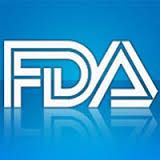FDA Approves sNDA for Oral ED Treatment
Stendra (avanafil) is now the only FDA-approved erectile dysfunction (ED) medication indicated to be taken as early as approximately 15 minutes before sexual activity.

VIVUS, Inc. and Auxilium Pharmaceuticals, Inc. today announced that the US Food and Drug Administration (FDA) has approved a supplemental new drug application (sNDA) for Stendra (avanafil), a phosphodiesterase type 5 (PDE5) inhibitor that treats erectile dysfunction (ED) in men age 18 years and older.
According to a news release from the companies, Stendra “is available in multiple dosage strengths (50, 100 and 200 mg tablets) and may be taken with or without food and moderate alcohol consumption (up to three drinks).” In clinical studies, when compared to placebo, Stendra “helped more men achieve an erection in as early as approximately 15 minutes that lasted long enough to successfully complete sexual intercourse.”
Based on data from the Massachusetts Male Aging Study, researchers estimate that 52% of men over 40 years of age experience some degree of ED, defined as “the inability to attain or maintain a penile erection for sufficient sexual performance.”
Men with ED may experience one or more of the following: trouble achieving an erection; difficulty achieving an erection firm enough for penetration; or erections not lasting long enough to have successful intercourse.
Additional risk factors for erectile dysfunction include cardiovascular disease (hypertension, atherosclerosis, and hyperlipidemia), diabetes, depression, alcohol use, smoking, pelvic/perineal surgery or trauma, neurologic disease, obesity, pelvic radiation, and Peyronie's disease.
The news release states the sNDA for Stendra was approved based on results from Study TA-501, “A Randomized, Double-Blind, Placebo-Controlled Evaluation of Avanafil for On-Demand Treatment of Men with Erectile Dysfunction.”
The 440-patient study conducted at 30 sites in the US was designed to “assess the efficacy of two dosage strengths of Stendra as early as approximately 15 minutes after dosing.”
Patients treated with Stendra had “a significantly higher proportion of attempts that enabled an erection sufficient for successful sexual intercourse as early as approximately 15 minutes following administration compared to placebo. The previously approved prescribing information recommended administration approximately 30 minutes before sexual activity.”
Stendra should not be taken with nitrates, HIV protease inhibitors, some types of oral antifungal medicines, or some types of antibiotics. Stendra should also not be taken in combination with other treatments for ED.
The most common side effects reported for Stendra are headache, flushing, runny nose, and congestion. Some men taking PDE5 inhibitors (such as Stendra) have reported a sudden decrease or loss of vision.
New Orleans
Wayne JG Hellstrom, MD, FACS, Professor of Urology at Tulane University School of Medicine in and primary investigator for the clinical trial, said ED patients in his practice “are looking for a safe and effective treatment option that also works fast.” Treatment with Stendra “can be an appropriate and important treatment option because the clinical trial demonstrated that it provides a rapid onset of action in many men in as early as approximately 15 minutes.”
Adrian Adams, Chief Executive Officer and President of Auxilium Pharmaceuticals, said “Stendra is the first FDA-approved ED drug in nearly a decade and offers men and their partners an exciting new option.” He also noted that the label expansion “helps position Stendra as an exciting 'on demand' ED treatment and assists with the very important aspect of spontaneity for men and their partners in real world use.”
Stendra was originally approved by the FDA in April 2012 as an ED treatment in adult men to be taken approximately 30 minutes before sexual activity.